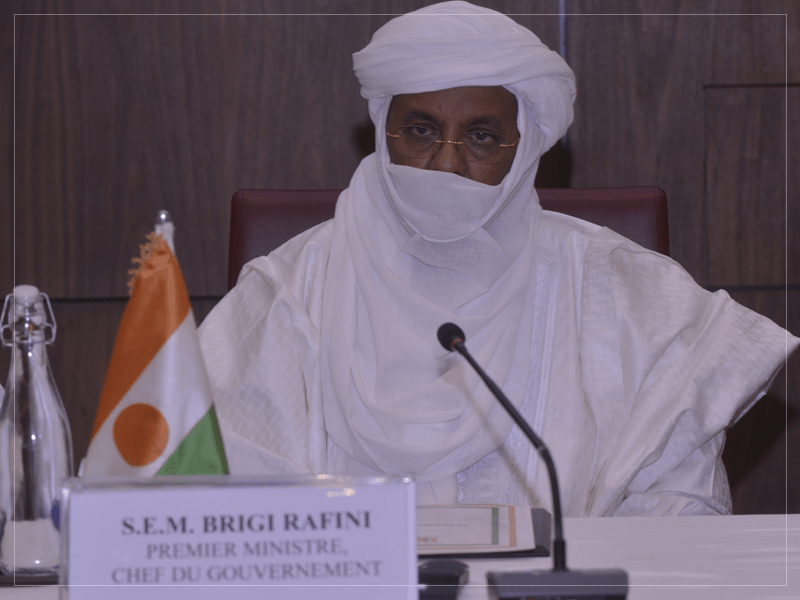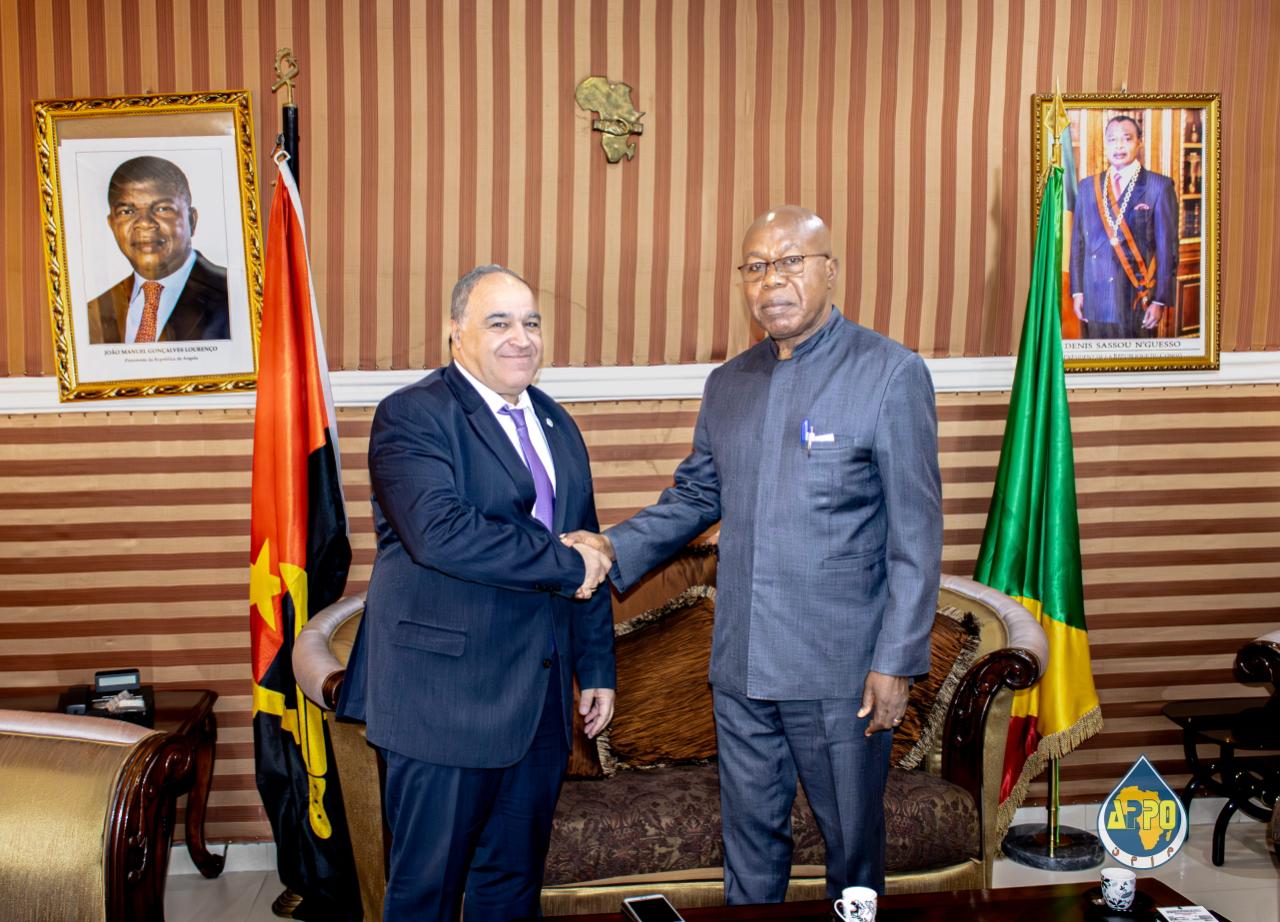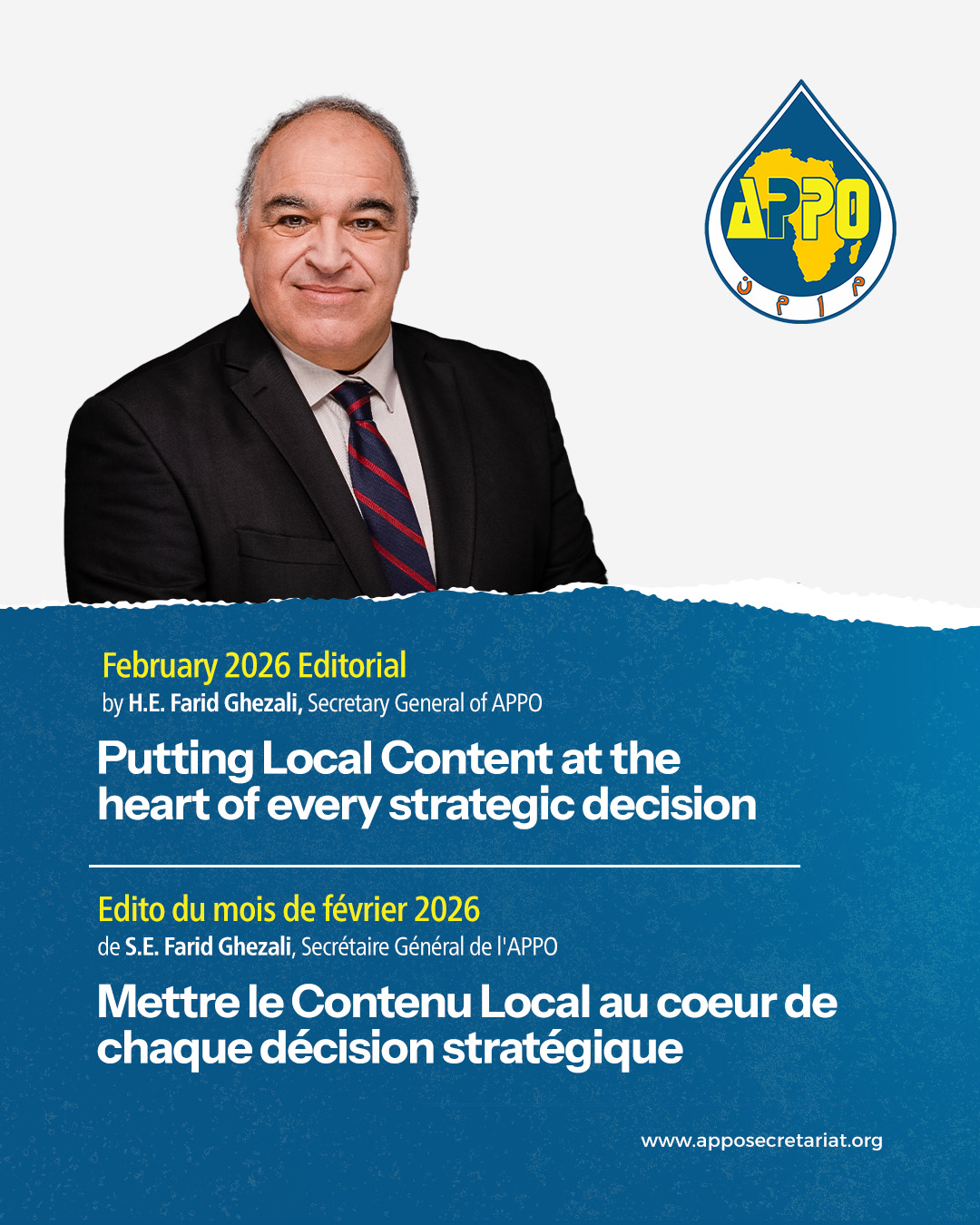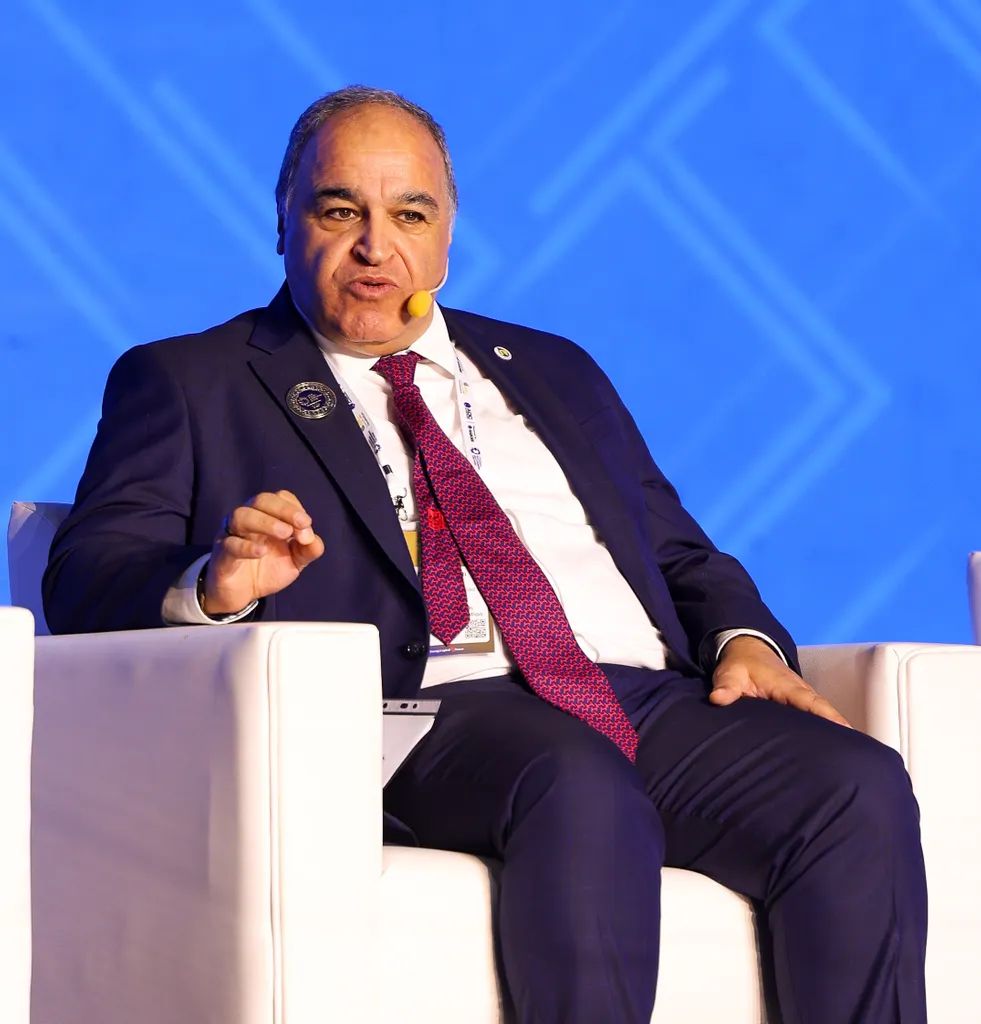
AT THE OFFICIAL OPENING CEREMONY OF THE SESSION OF MINISTERS IN CHARGE OF PETROLEUM OF THE MEMBER COUNTRIES OF AFRICAN PETROLEUM PRODUCERS’ ORGANIZATION (APPO).
Niamey, November 19, 2020
- Senior Minister, Minister of Petroleum, President of the Council of Ministers of Member Countries of the African Petroleum Producers’ Organization;
- Ladies and Gentlemen Ministers in charge of Hydrocarbons of the Member Countries of the African Petroleum Producers’ Organization;
- Ladies and Gentlemen Members of the Government of Niger;
- Ladies and Gentlemen Members of the Diplomatic Corps and Representatives of International Organizations;
- Ladies and Gentlemen of APPO Executive Board;
- Ladies and Gentlemen, Delegates from Member Countries;
- Distinguished Guests;
- Ladies and Gentlemen ;
I would like, at the beginning of my speech, to welcome all those who made the trip to Niamey to take part in the Ministerial Session of our common Organization, and tell you how very happy we are to welcome you here in Niger.
Niger is very pleased to host the ministerial session of the African Petroleum Producers’ Organization in two ways.
First of all, our country is holding the current Presidency of APPO and is hosting this body of our Organization for the first time.
Then, APPO, whose vocation is to promote synergies and common actions in terms of oil industry policies in favor of its Members, is certainly a tool for African integration.
But, in this matter, as you know, the President of the Republic, Head of State of Niger, His Excellency ISSOUFOU MAHAMADOU, is an ardent craftsman of African integration.
Designated by his peers as champion of the African Continental Free Trade Area (ZLECAF), he has effectively led this process of economic integration of our continent, a process that was concretized during the African Union Summit held in July 2019 in Niamey.
Ladies and Gentlemen Ministers,
Ladies and Gentlemen,
The opening of this Session takes place in a particular context related to COVID-19 which has seriously affected economies of countries around the world in general, and in particular those of oil-producing countries that have observed an ever-known fall in the prices of oil and gas.
Some countries had to pay to get rid of their products due to market disruption.
This situation is a sufficient proof that global oil systems unfortunately have limits, limits that are dangerous for the future of the African oil industry in particular.
The lesson to be learned is that there are enormous challenges. One of the challenges is to be able to reflect on innovative resilience mechanisms to protect our oil sector.
In Niger, we are committed to this because we see the oil sector as a lever for the country’s economic growth.
This means that, the COVID-19 pandemic will have to be, for us, a new starting line in connection with the relaunching of the reformed APPO with a new mission, a new vision, a new organization chart and new strategic objectives.
For this to happen, APPO must absolutely stick to its vision, that of a major and reference Institution in the world on hydrocarbon issues in Africa.
APPO must be able to create the necessary synergies because there is an urgent need to make the oil industry a tool for the economic and social development of our countries, to create a real market balance in a context where dumping, overproduction or counterbalancing are increasingly developing.
Even if our countries have more and more expertise, special emphasis must be placed on human capital and the value chain, which are the only conditions for Africans to effectively take control of a sector that is as strategic as it is vital.
Taking control also implies quality governance. In Niger, governance of the extractive sector is a top priority of the President of the Republic.
This is why the Government has taken steps to make the Initiative for Extractive Industry Transparency (EITI) effective, with the participation of all stakeholders: the administration, the private sector and civil society.
Ladies and Gentlemen,
The ten-year plan of the African Union for the period 2013-2023 provides for 11 key projects of Agenda 2063, including the African Raw Materials Strategy and the African Mining Vision program.
Oil should be a potential for growth, and help translate into reality the Vision of Africa in 2063 declared as follows: “an integrated, prosperous and peaceful Africa, led by its own citizens, and representing a dynamic force on the international scene”.
In order to do this, it is necessary, through oil, to create the conditions for an industrial transformation of our continent because Africa is one of the least industrialized continents.
I am pleased to see that APPO is working on perspectives that allow for hope. Such as the 1st Summit of Heads of State and Government and its Member Countries scheduled for the coming months, or the idea of an African Energy Investment Bank.
We need energy independence to support people’s development and well-being.
Niger pleads for an energy that preserves the environment; this is why it seems appropriate to me to insist on the need to avoid the “flaring” of associated gases by using them in the production of energy.
In addition to the Bank that I mentioned earlier, I also note the APPO’s desire to create an African physical market that would integrate all aspects of our needs for the development of African oil industries.
In addition, APPO has a Framework Agreement that serves as a basis for exchanges and cooperation among its Member Countries.
The opportunity must be seized to create a synergy of action so that African Local Content, which varies from 5 to 22%, can be raised to at least, stabilize 10% for countries with low rates.
Speaking of synergy, I welcome the highly beneficial partnership between OPEC and APPO, and hope that it will strengthen our capabilities in the global oil trade.
In conclusion, I remain convinced that your session is an additional opportunity to provide appropriate responses to the concerns of the Oil and Gas sector in Africa.
Reiterating my appreciation to the members of the Executive Council and the Secretary General of APPO for their abnegation to the task, I declare open the proceedings of the 39th session of the Council of Ministers of the African Petroleum Producers’ Organization.
I thank you.



